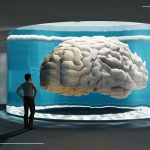In mid-19th century, postpartum infection mortality rates in doctor’s wards were three times higher than those in midwives’ wards. A Hungarian physician and scientist named Ignaz Semmelweis wrote in his publications that hand disinfection would significantly lower mortality rates. For that, he was mocked and rejected. This concept ran contrary to the prevailing opinions of the medical community at the time. This led to Dr Semmelweis suffering a nervous breakdown and committed to an asylum by his colleagues. There he was beaten by guards, and eventually died from a possible beating-related gangrenous hand wound.
Physicians tend to all in the high end of IQ spectrum as a whole. But having a high IQ has its drawbacks. According to research, intelligent people may be less hesitant to change their opinions. This is particularly true when empirical evidence deviates from our beliefs. We fall prey to confirmation bias and desirability bias. We become hesitant to changing our ideas as a result, digging in our heels.
To make matters worse, smart people frequently fail to see their own limitations because they get caught up in the illusion that they are more objective than the average person. “I’m too smart to be biased.” Our foundation in medicine is science. This distinguishes us from psychics and shamans.
As scientists, we are trained to question our “facts”. We need to cultivate a curious mind, and constantly update our views based on new data. In that way, being a physician trained in the scientific method is not just a profession, but a mindset.
Half-life of Facts:
Half-life is a physics concept that we are familiar with. But when it comes to facts, there is also a half-life. By the time we start our clinical practice, a large portion of the knowledge we learn throughout medical school has already become obsolete. Thanks to our ability to collaborate our knowledge globally and advances in technology, science is evolving so quickly that the half- life of knowledge has become shorter and shorter.
This is a new era of science which only ten years ago was laughed at.
Consider weight loss and diet as an example. Calories are no longer just calories. I cringe when I think of the number of times I told my patients “Calories in, calories out”. Who would have thought ten years ago that there are so many nuanced aspects to diets and calories that we have just begun to scratch the surface? How many of you are old enough to recall learning in medical school that the brain becomes fixed at a certain age? We now understand that the brain can adapt and develop far into our senior years thanks to neuroplasticity. Contradicting the notion that our genes determine a large portion of our biology, we now know that trauma can effect epigenetic changes which can impact not just our own lives, but also the gene expressions in the lives of two generations beyond.
The speed with which science evolves and shifts has become so much more apparent during the pandemic. Initially, we were told that the mask is ineffective. Later, it is our best chance of avoiding infection. The virus spreads by touch. The virus is airborne. No, it is aerosol.
People use this evolution for their own gain. Media and politicians exploit the science to argue for the message they want people to believe. The constant changes results in mistrust by the public. People want certainty. Instead of listening to science, some place their trust in pseudoscience: charlatans who dogmatically state they have the affirmative answer. The public crave dogma because it is the opposite of uncertainty.
Dunning Kruger Effect:
We don’t know what we don’t know.
There is a cognitive bias where those with the least skills and ability are most likely to overestimate their own skills. This is the Dunning Kruger effect.
Three ways to overcome the trap of Dunning Kruger
- Cultivate Be willing to accept when evidence show we are wrong. Be aware of our cognitive biases. We are often quick to criticize biases of others but fail to see our own. Humility breeds doubt and curiosity, allowing space for discovery of new information and opens up opportunity for meaningful discussion. The opposite of humility is ego, where we shut down information which challenges our core beliefs.
- Don’t hold your beliefs too closely. Stay open-minded. There is no shame in changing our minds. It shows humility, flexibility, and openess to new ideas when empirical data reflects new
- Practise mindful Instead of trying to prove you are right, think of how you can grow your knowledge.
“People who are right a lot, listen a lot. And they change their mind a lot.” Jeff Bezos
If we continue moving forward with a closed mind, we will be left behind. We become dinosaurs.
“If knowledge is power, knowing what we don’t know is wisdom” Adam Grant

MDForLives is a vibrant community of healthcare professionals and patients dedicated to shaping the future of healthcare. We provide valuable global insights to healthcare companies through online surveys, interviews, and discussion forums.






